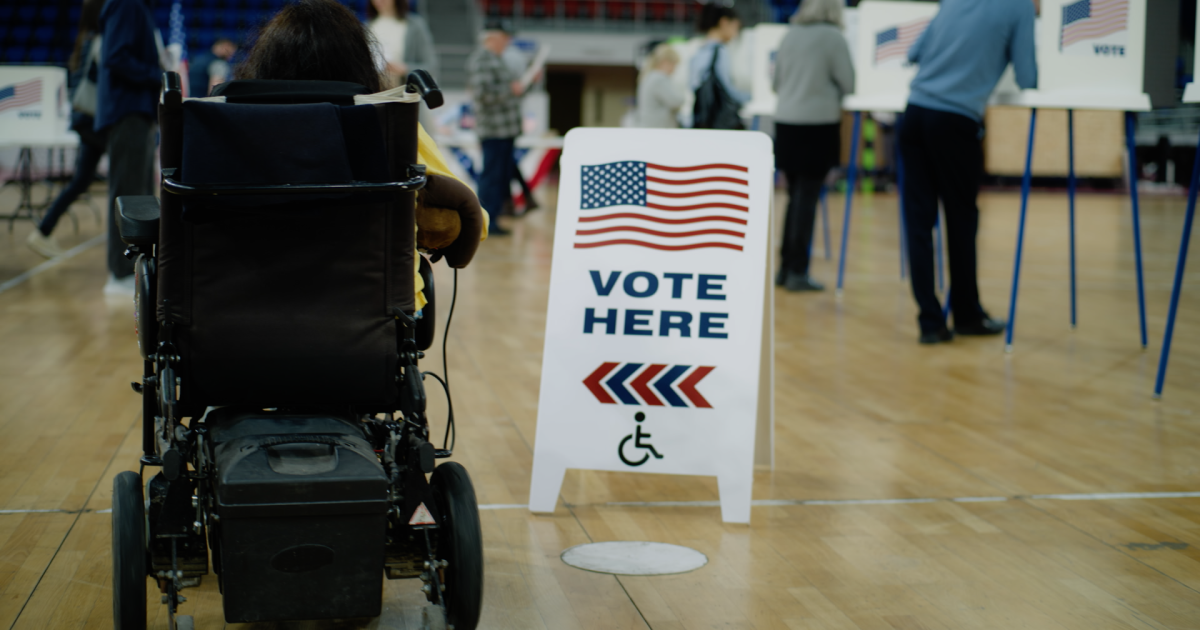COLUMBUS, Ohio — Ohioans with disabilities and their families are cheering a new federal court decision that invalidates part of a controversial voting law.
When Ohio passed a bill to overhaul its voting laws in 2022, Barbara Friedman Jaksik worried about the impact it would have on her family.
“My brother and people like him have the right to vote,” Friedman Jaksik told me in December ’22.
Her brother, Joel, suffered a stroke 20 years ago, and she is his legal guardian while he lives in a nursing home. She is a voting rights attorney and continues to fight to get him access to absentee ballots.
“My brother is an informed, engaged voter,” Friedman Jaksik told me on Monday. “There’s really no reason to make it any more difficult.”
House Bill 458 of the 134th General Assembly changed state law so that only postal workers or certain relatives other than the voter can deliver a sealed absentee ballot, including a spouse, parent, grandparent, child, sibling, uncle or aunt, niece or nephew.
This excludes caregivers, nursing home employees, grandchildren, cousins, neighbors, friends and other unrelated people.
If someone not on the list returns a ballot, it is a Class 4 felony. If a voter faces a felony charge for helping a loved one, they will not be able to vote.
“If something were to happen to me, there’s nothing my husband, my brother-in-law, could do,” Friedman-Jaksik said.
Jen Miller of the League of Women Voters of Ohio filed a lawsuit with the ACLU alleging that Ohio is violating the federal Americans with Disabilities Act and the Voting Rights Act.
RELATED: Ohio voting rights group alleges discrimination against people with disabilities in new lawsuit
Federal law allows voters with disabilities to “select a person of their choice to assist them in voting.”
“Many Ohio voters have to rely on grandchildren, in-laws, roommates or neighbors to return their absentee ballots or help them in other ways,” Miller said, “but they could be subject to a felony conviction, and that’s wrong.”
Jonathan Entin, a law professor at Case Western Reserve University, explained that lawmakers likely did not intend to disenfranchise voters with disabilities.
“Lawmakers were concerned about the possibility of what they call voter fraud, where dishonest, unethical or corrupt individuals could collect large numbers of votes, absentee ballots, and submit them in a way that undermines the integrity of the election,” Entin said.
To be clear, there is no evidence of widespread voter fraud.
Ohio leaders like Secretary of State Frank LaRose acknowledge this, but Entin said it’s another “precautionary” measure for them.
Both Miller and Friedman-Jaksik believe there is another motive.
“The people who are trying to pass these laws believe that the people who will be affected by these laws won’t vote for them, so they don’t want them to vote,” Friedman-Jaksik said.
The League of Women Voters has sought to block restrictive voting changes and currently supports an anti-gerrymandering constitutional amendment that was just approved for the November ballot.
“Right now we need lawmakers who are going to listen to Ohioans because they know they can win their seats again and again,” Miller said.
Ohio activists believe that putting redistricting reform on the ballot will finally hold lawmakers accountable.
Ohio activists plan to hold lawmakers accountable with anti-gerrymandering reforms
RELATED: Ohio activists plan to hold lawmakers accountable over anti-gerrymandering reforms
Judge Bridget Meehan Brennan of the U.S. District Court for the Northern District of Ohio sided with Judge Miller on access and struck down that particular provision of the law.
“At least at this stage, the chances of this ruling being overturned are very slim,” Entin said.
Friedman-Jaksik said this is great news.
“We need to encourage and enable as many people as possible to exercise their right to vote,” she said.
I reached out to the defendants in this case – the Attorney General’s Office, the Secretary of State’s Office, and the Cuyahoga County Prosecutor’s Office. Only the Attorney General’s Office responded, saying it is in discussions with the other defendants and is “considering all options.”
Follow WEWS Statehouse Reporter Morgan Trau twitter And Facebook.

